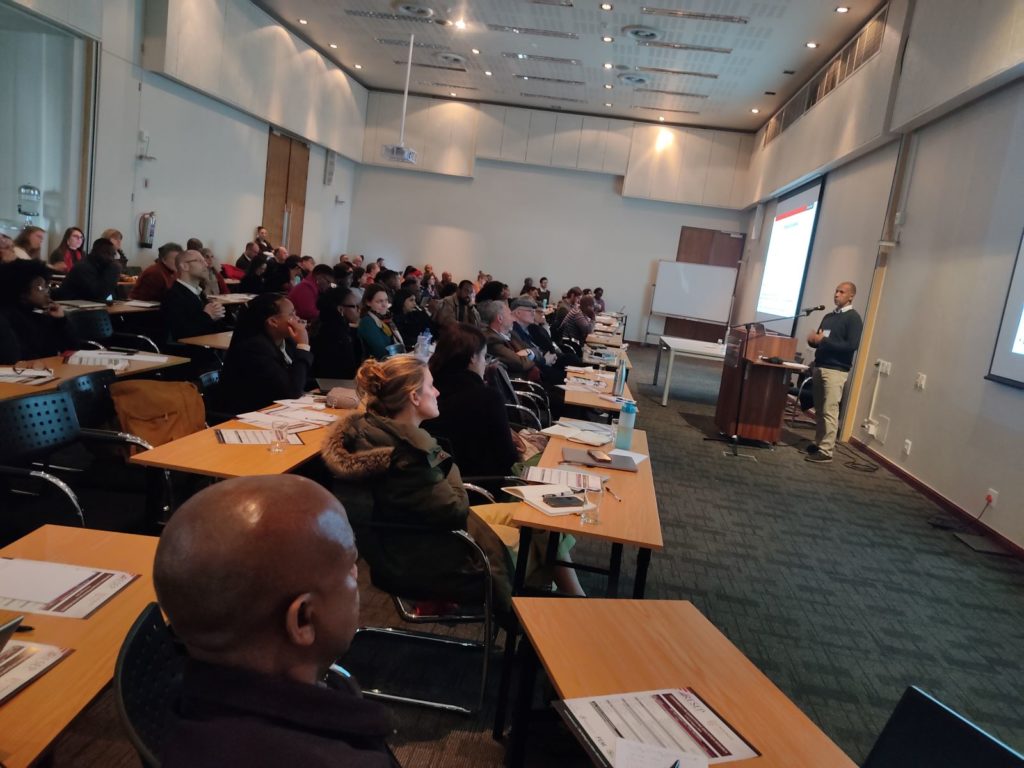This report presents groundbreaking insights into South Africa’s education system, leveraging extensive data from SA-SAMS, LURITS, and the Data Driven Districts (DDD) programme. Authored by Servaas van der Berg, Chris van Wyk, and Martin Gustafsson, with a multidisciplinary team, the study examines critical trends in learner progression, absenteeism, subject choice, and the long-term impacts of COVID-19 on education.
In the wake of the COVID-19 pandemic, the Western Cape Education Department’s (WCED) 2023 Back-on-Track (BoT) initiative is proving to be a groundbreaking step towards educational recovery. This R1.2 billion programme has targeted critical learning gaps in mathematics and language, focusing on Grades 4, 7, and 8. The results, independently evaluated by RESEP, reveal remarkable gains in learning outcomes.

From 21-22 August 2024, Resep hosted its 8th annual Quantitative Education Research (QER) conference at STIAS, Stellenbosch. Among the more than 100 attendees were academics, students, government officials, NGOs representatives and other stakeholders. Speakers, chairs and participants collectively provided an overview of key trends in South African education and profiled new research. In this synopsis of the 2-day programme, some key insights across all presentations are considered under eight emerging conference themes.
In this research note, Emma Whitelaw and Nicola Branson from the University of Cape Town (UCT), examine the association between National Senior Certificate (NSC) performance and National Benchmark Test (NBT) scores among applicants to UCT. They find that during COVID-19 disrupted years, applicants’ admission point scores, derived from NSC grades, rose relative to NBT scores which remained similar since the onset of COVID-19.
Basic Education Lekgotla 2024: Recent South African trends and what they mean for the future
Basic Education Lekgotla 2024: Recent South African trends and what they mean for the future
Dive into the evolving landscape of basic education in South Africa with Martin Gustafsson’s illuminating presentation from March 2024. Titled “Recent South African Trends and…
In this Covid-Generation working paper, Bianca Böhmer and Gabrielle Wills contribute new evidence on pandemic effects on reading scores and inequalities in reading in South Africa through an in-depth analysis of data from the 2016 and 2021 Progress in International Reading Literacy Study (PIRLS) – a Grade 4 reading comprehension assessment.

This report leverages data mainly derived from the South African School Administration Management System (SA-SAMS), including a unique longitudinal version of the Data Driven Districts (DDD) data for three provinces as well as the Learner Unit Record Information Tracking System (Lurits) data and National Senior Certificate (matric) examination data to analyse the dynamics of the South African education system in the aftermath of the Covid-19 pandemic. It provides a detailed analysis of learner flows, assessment strategies, and teacher dynamics, offering valuable insights for policymakers and educational stakeholders and illustrating how such data can be used in education policy and planning.





